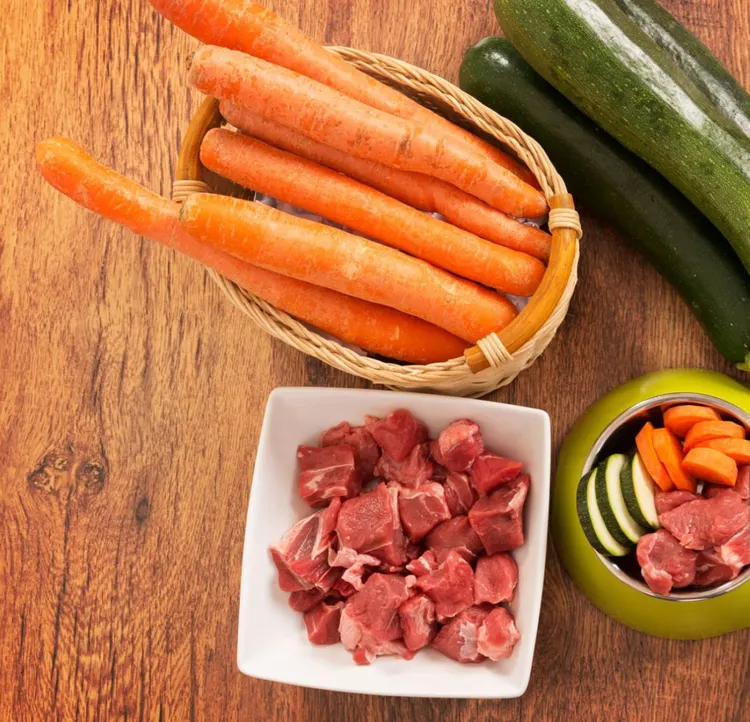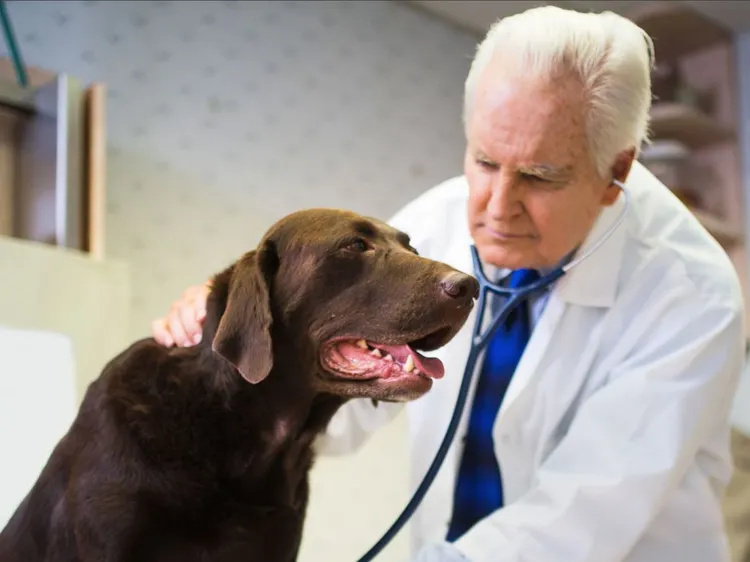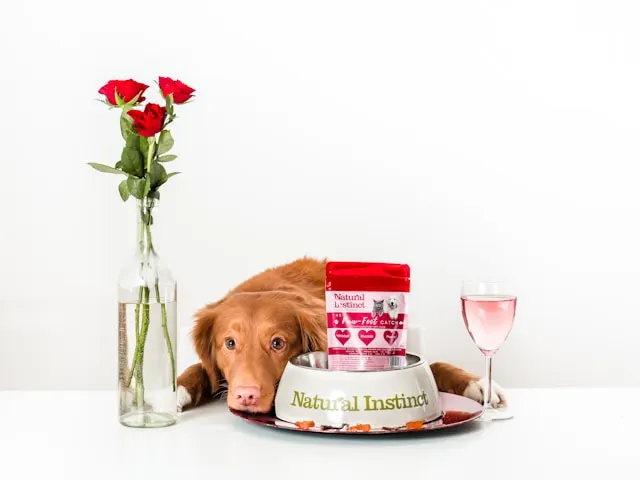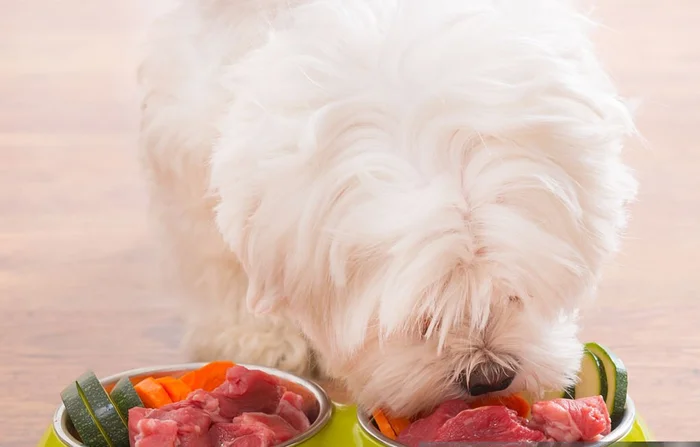Noticing an older dog losing weight unexpectedly can be alarming. While some weight loss is natural with aging, sudden or unexplained weight loss in senior dogs could indicate an underlying issue that warrants attention. This guide explores why senior dogs might lose weight, eco-friendly solutions to support their health, and when it’s essential to consult a veterinarian.
Reasons for Weight Loss in Older Dogs
Weight loss in older dogs can arise from various causes, some related to natural aging and others indicating possible health concerns.
1. Medical Issues
Several medical conditions are known to cause weight loss in aging dogs:
- Diabetes: An increase in thirst, urination, and weight loss can indicate diabetes in dogs.
- Kidney Disease: Poor kidney function often reduces appetite and causes weight loss.
- Cancer: Cancer, especially gastrointestinal types, is common in older dogs and can lead to weight loss due to reduced nutrient absorption or decreased appetite.
- Thyroid Problems: Hyperthyroidism, though rare in dogs, can speed up metabolism, resulting in weight loss.
2. Dental Problems
Dental health is often overlooked in senior dogs, but dental pain can make eating uncomfortable or painful. Issues like tooth decay, gum infections, and loose teeth might cause your dog to avoid food, leading to weight loss.
3. Digestive Disorders
Poor nutrient absorption due to gastrointestinal issues can prevent your dog from gaining or maintaining weight. Older dogs can suffer from conditions like inflammatory bowel disease, which impacts the digestion and absorption of food.
4. Loss of Appetite
Changes in metabolism, anxiety, or stress are common in aging pets, and these factors can affect their appetite. Changes in routine, the passing of a pet companion, or reduced physical activity can all impact a senior dog’s interest in food.
Practical Ways to Address Weight Loss in Older Dogs
Taking proactive steps to address weight loss in senior dogs can help improve their overall well-being.

1. Consult a Vet
Before trying any remedies at home, consult your veterinarian to rule out underlying medical conditions. A thorough examination, including bloodwork and possibly imaging, can help identify if there’s an underlying condition causing the weight loss.
2. Modify Their Diet
Eco-friendly dietary adjustments can go a long way in helping an older dog regain weight in a sustainable way:
- High-Calorie Food Options: Consider dog food made specifically for senior dogs, designed to be easier to digest and often enriched with beneficial nutrients.
- Homemade Dog Food: Preparing homemade meals with high-quality proteins, grains, and vegetables lets you control exactly what your dog eats. Eco-conscious protein sources like turkey, lentils, or sustainably farmed fish can provide essential nutrients without harming the environment.
- Organic Ingredients: Use certified organic ingredients wherever possible, avoiding processed foods or additives that could upset a senior dog’s digestive system.
3. Introduce Natural Supplements
Certain natural supplements can stimulate appetite and aid digestion, especially when approved by your vet:
- Probiotics: Probiotics improve gut health and help with digestion, which can help senior dogs absorb nutrients better.
- Digestive Enzymes: These enzymes help dogs break down food more effectively and absorb more nutrients.
- Herbal Appetite Stimulants: Herbs like slippery elm or dandelion root are gentle on a dog’s system and can be eco-friendly additions to their diet. Always consult a vet before using these remedies.
4. Hydration and Gentle Exercise
Keeping your dog hydrated and engaged in regular but low-impact exercise can support digestion and overall health:
- Fresh Water: Make sure clean water is always available, as dehydration can exacerbate weight loss.
- Eco-Friendly Exercise: Short walks or gentle play with toys made from sustainable materials can help maintain muscle mass without straining their joints.
Eco-Friendly Solutions for Older Dogs
Switching to eco-friendly products can support both your pet’s health and environmental impact.
1. Sustainable Senior-Specific Foods
Eco-conscious pet food brands often use sustainably sourced ingredients and eco-friendly packaging. Look for brands with ethically sourced protein options, like free-range chicken or fish from certified fisheries, and organic grains and vegetables.
2. Biodegradable Feeding Bowls and Eco-Conscious Supplements
Choose biodegradable bowls made from bamboo or cornstarch, which are safe for your dog and reduce plastic waste. Supplements like probiotics or digestive enzymes are available from brands using sustainable packaging and sourcing.
3. Upcycled and Recycled Dog Bedding
Senior dogs often spend more time resting, so consider providing them with comfortable bedding made from upcycled or recycled materials. These beds offer comfort without adding to landfill waste.
When to Contact a Vet
If your senior dog’s weight loss is sudden, unexplained, or accompanied by other concerning symptoms, it’s essential to seek veterinary help.
- Rapid Weight Loss: If your dog has lost a significant amount of weight quickly, a vet check is necessary.
- Accompanied Symptoms: Lethargy, vomiting, diarrhea, or pain are all signs that something more serious may be occurring.
- Refusal to Eat: If your dog stops eating entirely for more than a day, it may signal an underlying health issue that requires medical attention.
- Signs of Pain: Watch for signs of pain while eating, like growling, pawing at the mouth, or drooling, as these could indicate dental issues.

Weight loss in older dogs isn’t always an indicator of serious health issues, but it does call for quick action and attention. By understanding potential causes and consulting your veterinarian, you can help keep your senior dog healthy and happy. Eco-friendly dietary adjustments, sustainable products, and gentle physical activities can be beneficial for your senior dog’s well-being. Monitoring your pet’s condition, combining natural solutions, and providing professional care ensures they enjoy their golden years comfortably.



